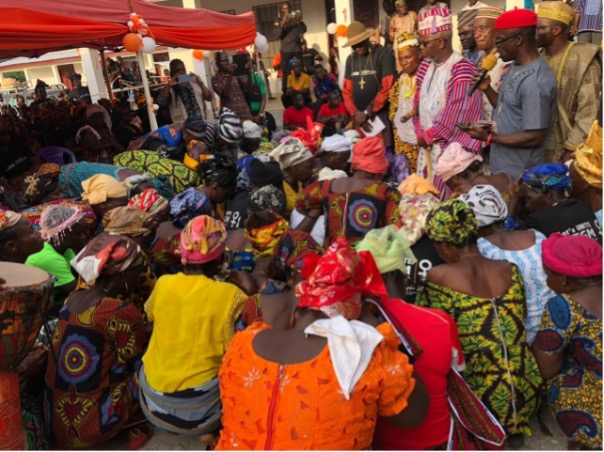
GARPUE TOWN, Grand Bassa County – Schools are now open in Liberia, but 14-year-old Tutugirl has not joined her classmates. Tutugirl says it has been impossible since she returned injured and traumatized from the “bush school” where she and her friends were forcefully taken after they were kidnapped from this town in September. While she was there Tutugirl says she and her friends underwent female genital cutting.
“We were coming from to the water side then they ran behind us, that how they catch us,” says Tutugirl.
Tutugirl speaks nervously. (Her real name is being withheld for her security.) She says about thirty girls were initiated from this town – just five kilometers from Buchanan City. But it is a deep secret. She says the women who grabbed her were led by Annie Garpue, head Zoe of the Sande traditional society here. Garpue later admitted to the kidnapping to this reporter.
No one dares talk about it to strangers for fear of punishment by town elders. Tutugirl says some of the girls were initiated by their parents, but she was forced by the Zoes.
“Since we come from there, they can be watching us to see if we will talk with anybody about what happened to us. Me, I don’t like it but I inside now so I can’t talk plenty.”
Tutugirl is one of an unknown number of girls who have been kidnapped and forcefully initiated into the Sande Society in the last year. An FPA/New Narratives investigation has found that more than a hundred girls who should have been in formal schools are currently in traditional schools across the country.
The kidnappings and forced initiations have continued despite a moratorium placed on the schools by the traditional leaders themselves at a conference held in Gbarnga, Bong County in February.
At the gathering, in observance of the International Day of Zero Tolerance to FGC, more than 150 traditional leaders from the 11 counties that practice Sande in Liberia unanimously signed a six-count policy statement suspending Sande Society practices. Together the National Council of Chiefs and Elders of Liberia, the Ministry of Gender, Children and Social Protection and the Ministry of Internal Affairs announced a suspension of Sande Society activities, including FGC, until 2025.
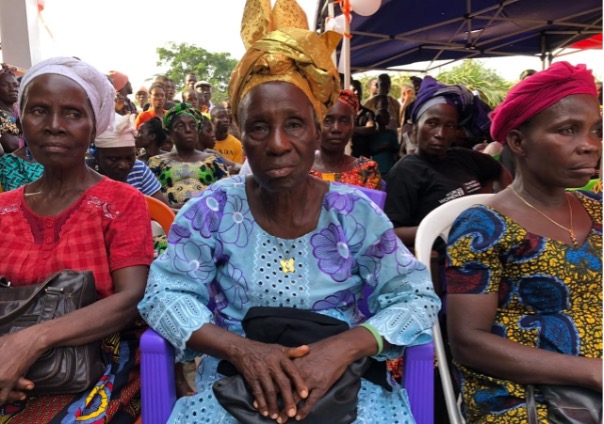
But within months, many traditional leaders were back running bush schools. There is fierce resistance to ending FGC among the traditional leaders who say it is a central part of their culture. Over the last decade they have fought bans and legislative efforts. They have threatened lawmakers that they will lose support of traditional leaders if they pass a bill currently before the legislature to ban the practice. Fonati Koffa, Deputy Speaker of the House conceded to FPA/NN in September that the bill did not have enough support to pass. Liberia is one of just three countries in West Africa that has yet to ban FGC.
According to the World Health Organization FGC is a harmful practice that involves the removal of external female genital organs for non-medical reasons. It can have devastating health consequences, including haemorrhaging, infection, chronic pain, childbirth complications and, in severe cases, death. WHO estimates that more than 200 million of the world’s women and girls have undergone this procedure in more than 30 countries where it is practiced. In Liberia, the practice has been underpinned by the economic and political power that it gives the traditional societies.
Sande and FGC have been the way of life for people of this town for generations, according to 77-year-old Annie Garpue, the head Zoe who controls the bush here. Speaking through an interpreter, Annie denies that the practice continues here now, but admitted kidnapping more than 30 girls two months ago.
“Now, now we not having any one in the bush,” says Annie. “Last month [September] we were having about 30 girls, but we finish put them outside.”
But Annie says there is a need for livelihood support for her and her women to end FGC in the area.
“That the thing we used to do to buy our salt and soap,” says Annie. “But we are not doing it again, so if they do not help us, we start again. We will grab the children again to put them in the bush.”
Kidnappings and forced initiations have escalated across the country in recent years as awareness campaigns and media coverage of the harmful practices of Sande have persuaded more and more parents to refuse to send their girls. Sande membership plummeted from 73 percent of Liberian women in 2008 to just 35 percent according to the 2020 Demographic and Health Survey.
Sande leaders make their income from parents who send their daughters to the school. When girls are taken against their parents’ will parents are then extorted for money to keep the girls fed. Sometimes parents have found the girls and rescued them but often the girls are only returned after a graduation ceremony in which their genitals are cut.
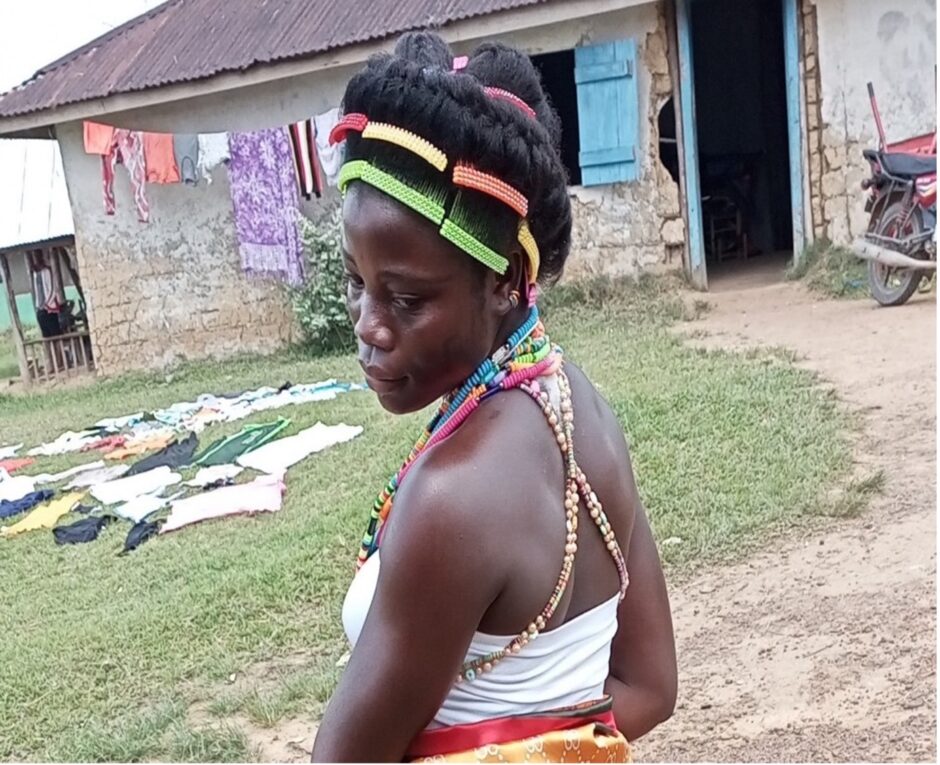
In October, FrontPage Africa reported that an 11-year-old was rescued from a bush school in Margibi county and rushed to the Benson hospital in Paynesville, Montserrado county suffering profuse bleeding.
According to FPA, the girl’s medical report showed that FGC had severed a major vein leading to life threatening blood loss. Doctors say Sande had operated on the girl in a botched surgery that likely meant she will suffer a fistula during childbirth later in life. A fistula happens when a baby is blocked from passing through the birth canal causing a hole to open between a woman’s anus and urethra causing uncontrollable leaking.
In August national media outlets including OK FM and ELBC reported that schoolgirls in Nimba and Grand Cape Mount Counties were kidnapped by FGC practitioners for forceful initiation.
They will not stop according to Mary Flahn, 85, head of 110 FGC practitioners in Nimba County. Flahn says she was 15 when she started cutting and at 20, she began the practice of midwifery. She says she cannot stop because girls who graduate from Sande schools are the most trained in the Liberian society.
Flahn denies FGC causes health complications by itself. She says injuries happen when practitioners are untrained.
“Some people don’t know the job. You know some work there when you are doing it, place you na supposed to reach when you reach there that place will close. [And for] that person to born is hard.”
In Grand Cape Mount County, following report by ELBC Correspondent Jenneh Kemokai, a former ELBC Correspondent Mark Rogers confirmed to NN/FPA that in August more than 50 girls were graduated by Zoes in Daniel Town, Grand Cape Mount County.
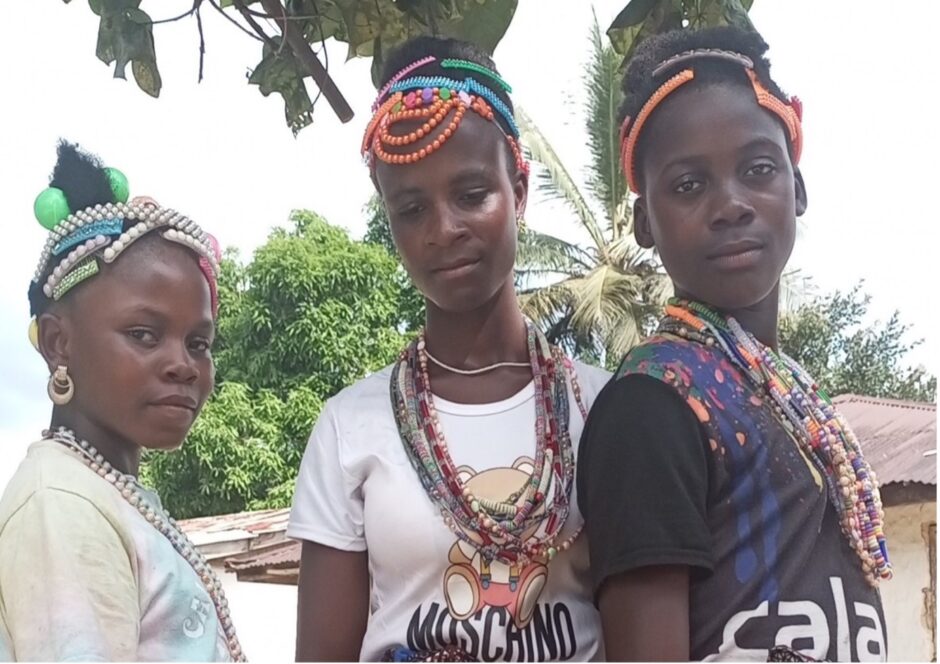
In River Cess County, about ten girls between the ages of 10 and 13, were kidnapped and forcibly initiated on earlier this month in Boegeezay Town, in Upper River Cess. A ten-year-old and a 13-year-old told FPA/NN that they were among the initiated. They say they are not happy about what happened to them but dare not talk to a reporter because they are afraid of being punished.
In a sign of just how entrenched cutting is in some communities, the girls live in the home of River Cess District One representative Rosanna Shaack, who has been a vocal advocate of girls and women’s rights. Also in the home is Tina Dennis, sister to Shaack, and Culture Inspector in the district, tasked with oversight for all Sande bush schools in the county.
“I not the person controlling the bush,” says Tina. “My work that to make sure when anything happens there for me to put it under control.”
Tina denied that any girls went after the Gbarnga ban was put in place.
“That true we put some girls outside this gone Friday,” says Tina. “But the bush was open, and the children was there before we go Gbarnga.”
Other community members say the government must send clear messages on the harms of FGC. John Moore, a member of the Monweh Concern Citizens Movement in Upper River Cess and a resident of Boegeezay, is angry at the involvement of the representative’s sister in female cutting. He blames the ongoing scourge of kidnappings on President Geoge Weah’s decision to issue motor bikes and pickup trucks to Zoes across the country to effectively operate.
“This has been one of our problems that we are faced with in our community,” Moore says. “As we are all aware, written documents were sent to superintendents, district commissioners and they even had meeting. It was read and then explained to our people that this practice, mainly the girls’ society, should be put halt to. But surprisingly, since the president of the Republic of Liberia gave Zoes their motor bikes, their cars, it has been one of the serious practices. Even people leaving schools and taking children from the classrooms.”
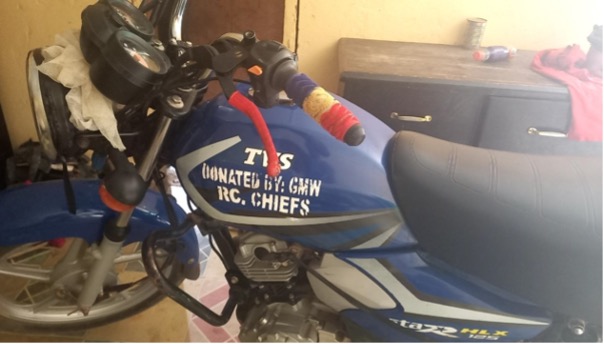
This story was a collaboration with New Narratives as part of the Investigating Liberia project. Funding was provided by the US Embassy in Monrovia. The funder had no say in the story’s content.
